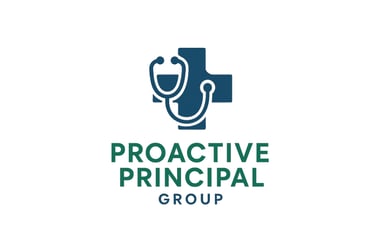New AI Liability Standards: California's new AI laws could impact your practice. Don't fly blind. Click to read the Blog & get the Free AI Risk Strategy Checklist
"We Need to See Your Records": What Doctors Must Know About Payer Audits & How to Respond to Protect Themselves
2 min read


It usually starts quietly.
A letter. A portal message. Maybe a phone call.
“We are conducting a post-payment review and request medical records related to the following claims…”
For many physicians in private practice, these third-party payer audit requests seem routine. Something to pass along to your billing team or admin assistant. But what seems like a paperwork request can quickly escalate into something far more serious.
I’ve worked with physicians across the country who made honest mistakes when responding to payer audits, only to find themselves facing six-figure recoupment demands or more, contract termination or network exclusion, or even referrals to state and federal fraud units.
So let’s talk about what these audits really mean, and more importantly, what you should do the moment one shows up.
The Cost of Getting It Wrong:
Many physicians incorrectly assume these are simple paperwork exercises. When physicians mishandle an audit or records request, the fallout is serious:
Overpayment demands: Payers may demand tens of thousands of dollars or more in recoupments (especially when extrapolation is involved).
Termination from the payer's network: One audit can jeopardize your insurance contracts or lead to network exclusion.
Medical Board complaints: If payers find questionable billing, they can file a referral with the medical board.
NPDB reports: Certain audit findings may be reported to the National Practitioner Data Bank, damaging your career for years to come.
Referrals: One audit can lead to a referral to state and federal fraud units for further investigation.
Common Mistakes Doctors Make During Audits:
❌ Sending incomplete or disorganized records
❌ Assuming "clinical medical necessity" equals "payer/audit medical necessity"
❌ Failing to explain their clinical judgment in a written narrative
❌ Ignoring tight response deadlines
❌ Handling the audit themselves without legal or compliance guidance
✅ What to Do When You Receive a Payer Audit or Records Request
Take It Seriously Immediately - Even if the language sounds casual, treat every request for records like it's tied to a potential audit or investigation. Flag deadlines and don't let it sit.
Understand the Type of Request - Is it pre-payment or post-payment? Targeted or random? Knowing this determines your exposure and how thoroughly to review documentation before submission.
Don't Alter Documentation - Resist the urge to "fix" or "clarify" records. Payers can detect changes, and even minor edits may raise red flags around fraud or intent to mislead.
Verify What You're Sending - Double check that you're only sending the records requested - no extra charts or unrelated PHI. Over-disclosure can create new legal headaches as well.
Get Help - This is where doctors fail. These are not just billing disputes. They can evolve into more legal risks such as government investigations. An experienced consultant or healthcare attorney knows how to handle payer disputes and can protect your practice and your license.
Christina L. Essex
Founder & Principal Consultant
© 2025. All rights reserved. | Proactive Principal Group, LLC | Disclaimer | Privacy Policy | Terms of Service


info@ppgconsultants.com
Monday - Thursday: 9am - 5pm
Friday: 9am - 3pm
Mailing Address: 1445 Woodmont Ln, NW # 2408, Atlanta, GA 30318
Proactive. Strategic. Empowered.
Your physician's advocate and navigator. We help you move with clarity. Let us protect your license and livelihood.
678-203-8704
Contact Us
